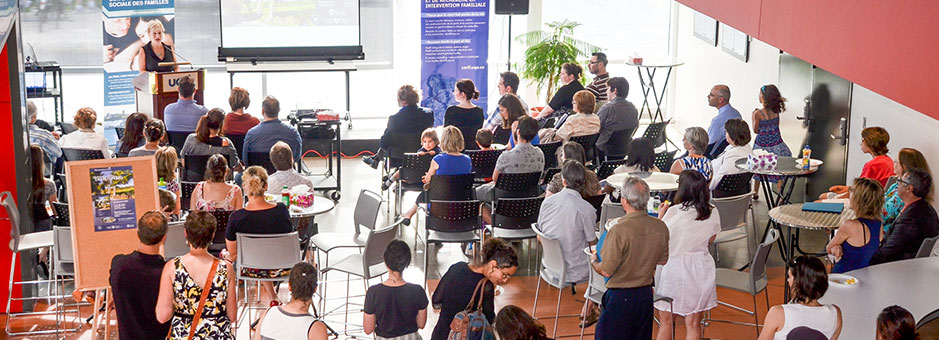The research program of the "Fatherhood, Family and Society" team aims to promote the psychosocial health of fathers and their families during the perinatal period, as well as to improve services (social, health and community) for them. There are two main target research themes:
Theme 1- Fundamental research aimed at developing and validating models explaining the psychosocial health of fathers and their families (spouses, children, network members) and factors associated with healthy development trajectories. The following general objectives are targeted: 1) characterizing fathers' psychosocial health (mental health, paternal involvement, conjugal, coparental and social relationships), determinants (risk and protection factors) and their development trajectories in two contexts of vulnerability, namely procreation and parenthood; 2) characterizing families' psychosocial health (spouse, children, network), determinants (risk and protection factors) and their development trajectories.
Theme 2- Applied research aimed at building, implementing and evaluating innovative intervention models in terms of prevention and promotion of the psychosocial health of fathers and their families. Within this area, two main objectives are targeted, namely: (1) analyzing the needs of fathers and their families, the practices and services used, their adequacy in relation to the needs, as well as the barriers and facilitators; (2) developing, implementing and evaluating innovative practices, programs and services for fathers and their families.




